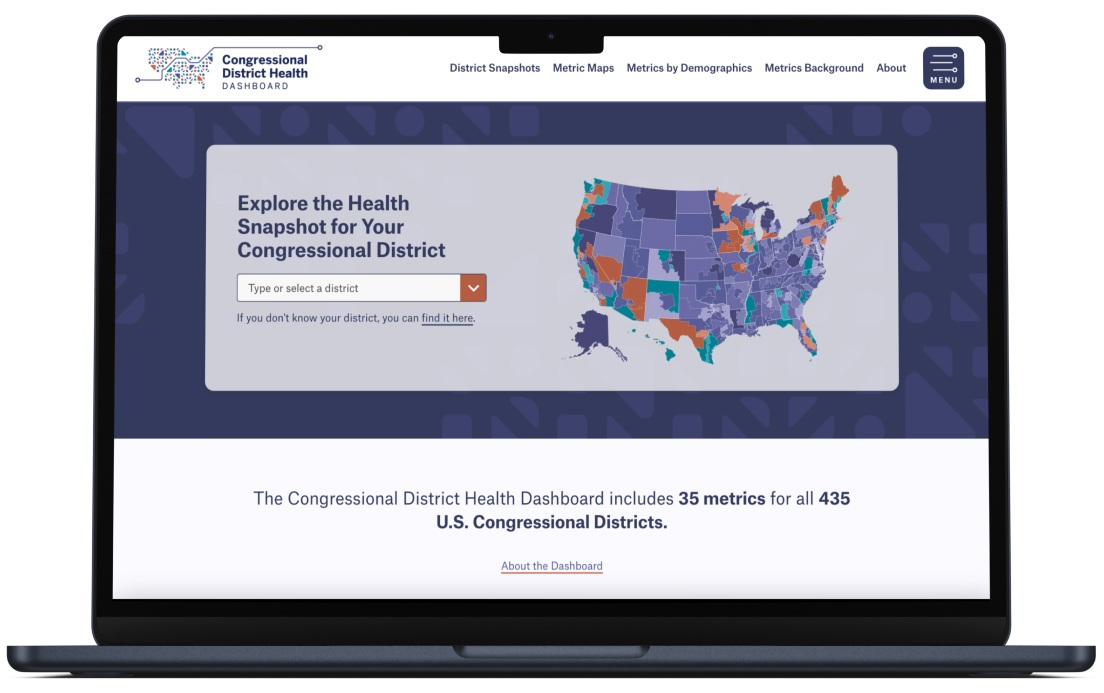NYU Langone Health, Department of Population Health
Making Health Data Visible to Support Policy Change
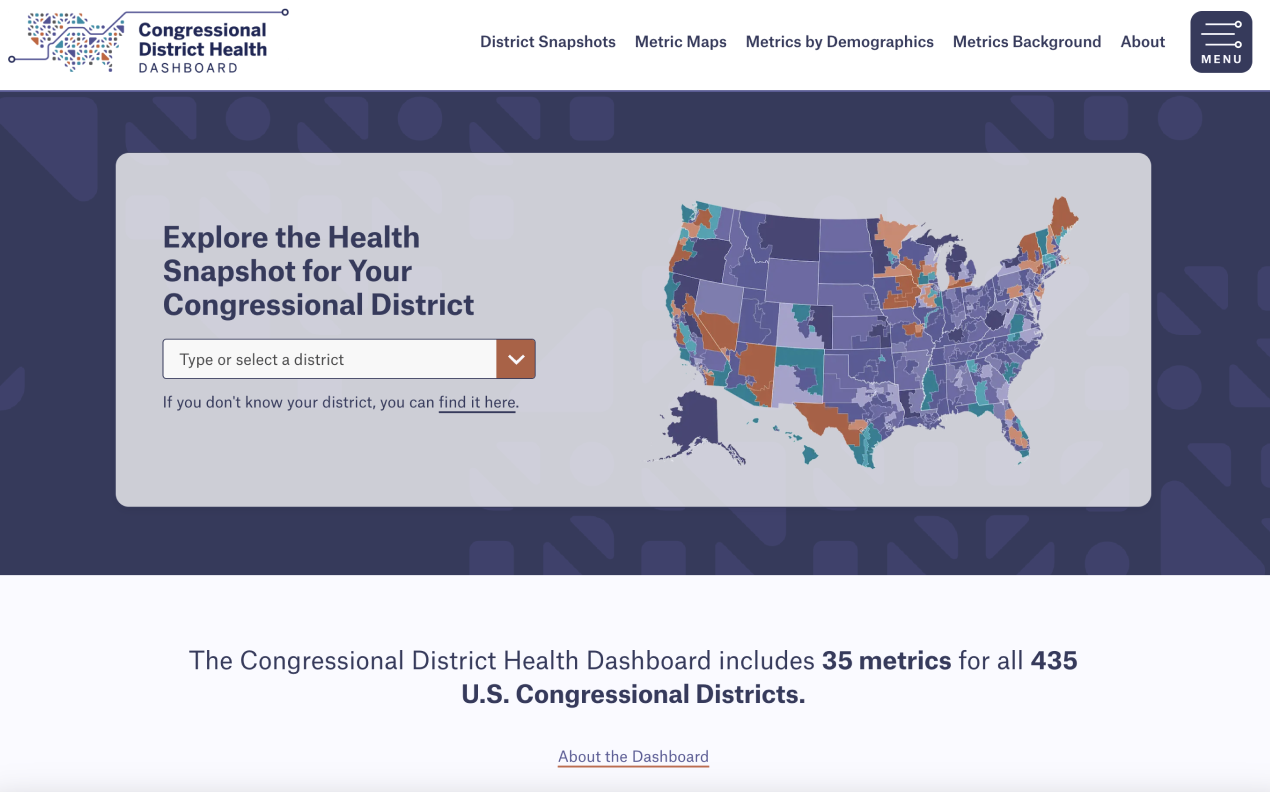
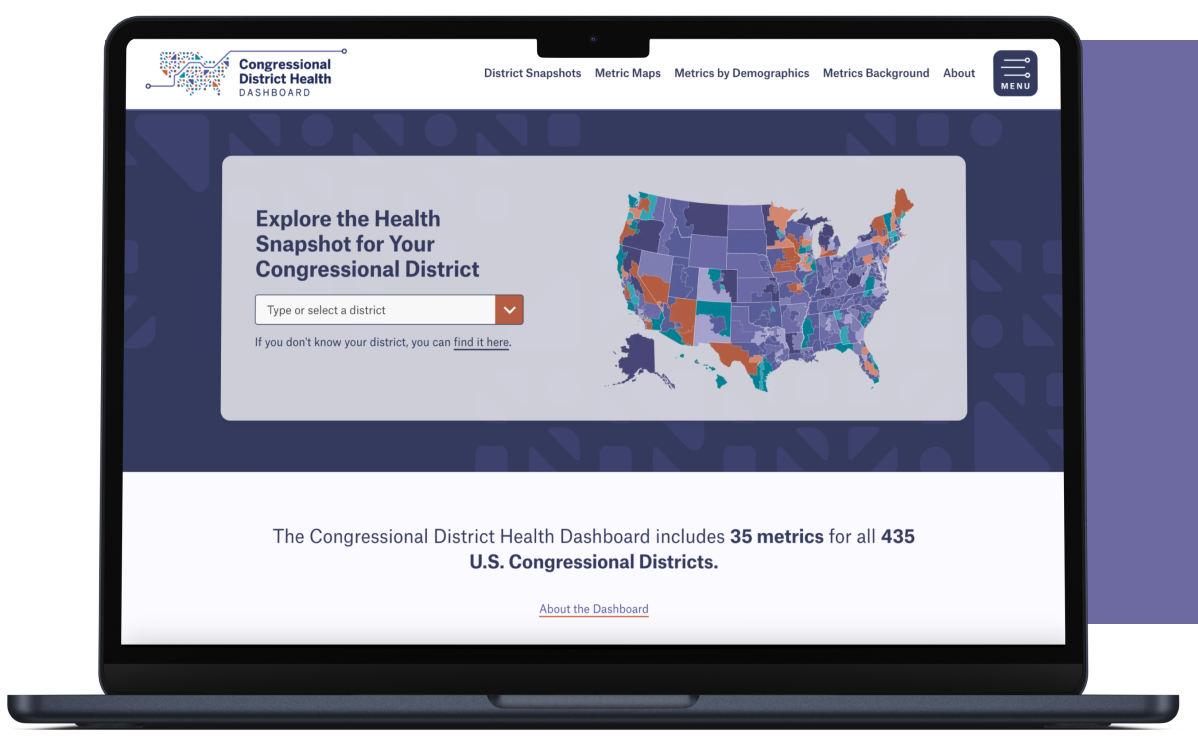
Created by the Department of Population Health at NYU Grossman School of Medicine in partnership with and support from the Robert Wood Johnson Foundation, the Congressional District Health Dashboard is based on a belief that where a person lives shouldn’t determine how long or how well they live.
The Dashboard recognizes that while everyone should have the same opportunity to live the healthiest life possible, persistent and systemic barriers to health and opportunity exist in many areas across the country. While city, state, and regional-level data exist, the Congressional District Health Dashboard launched in January 2023 as a first-of-its-kind resource, offering trusted data on health and its drivers for all 435 (and Washington DC) U.S. congressional districts.
The Dashboard uniquely stratifies critical health data across 435 congressional districts. Building on NYU’s City Health Dashboard, also developed in partnership with Forum One, this Congressional dashboard takes a similar data-driven approach to paint a picture of health corresponding to the geographic areas represented by members of the U.S. House of Representatives.
Forum One developed the site on a headless architecture with a Contentful back-end, React front-end, and interactive maps built with Carto.
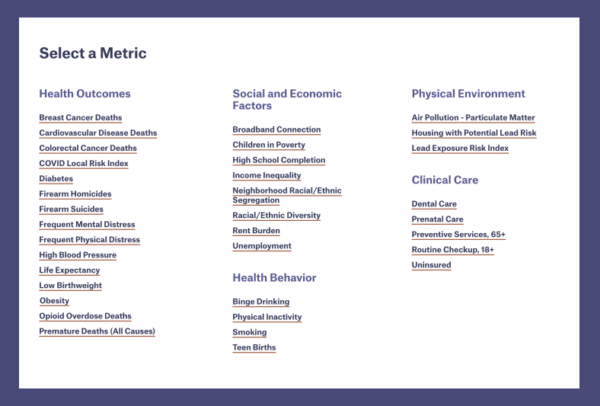
PBS News HourA new data dashboard makes it easier to compare social, economic and health factors in all 435 congressional districts across the country.
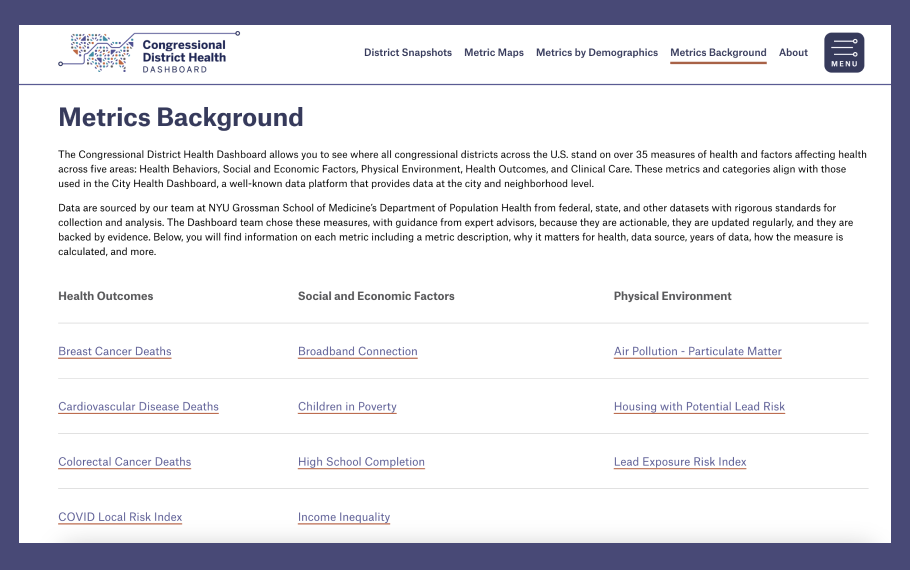
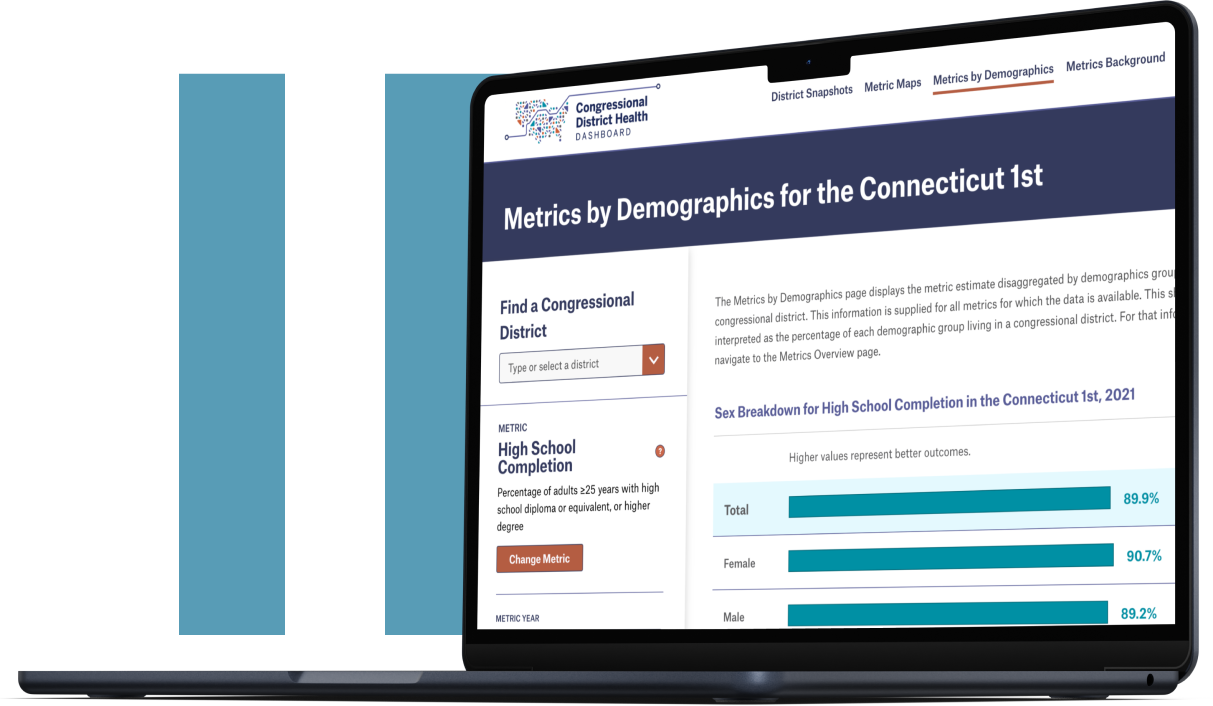
The Difference in Our Work
The Dashboard makes it possible for anyone to analyze the drivers of health, identify specific local health challenges, and support public policy and other solutions to address these challenges.
AxiosThe dashboard can help lawmakers craft policies that target their constituents’ actual needs.
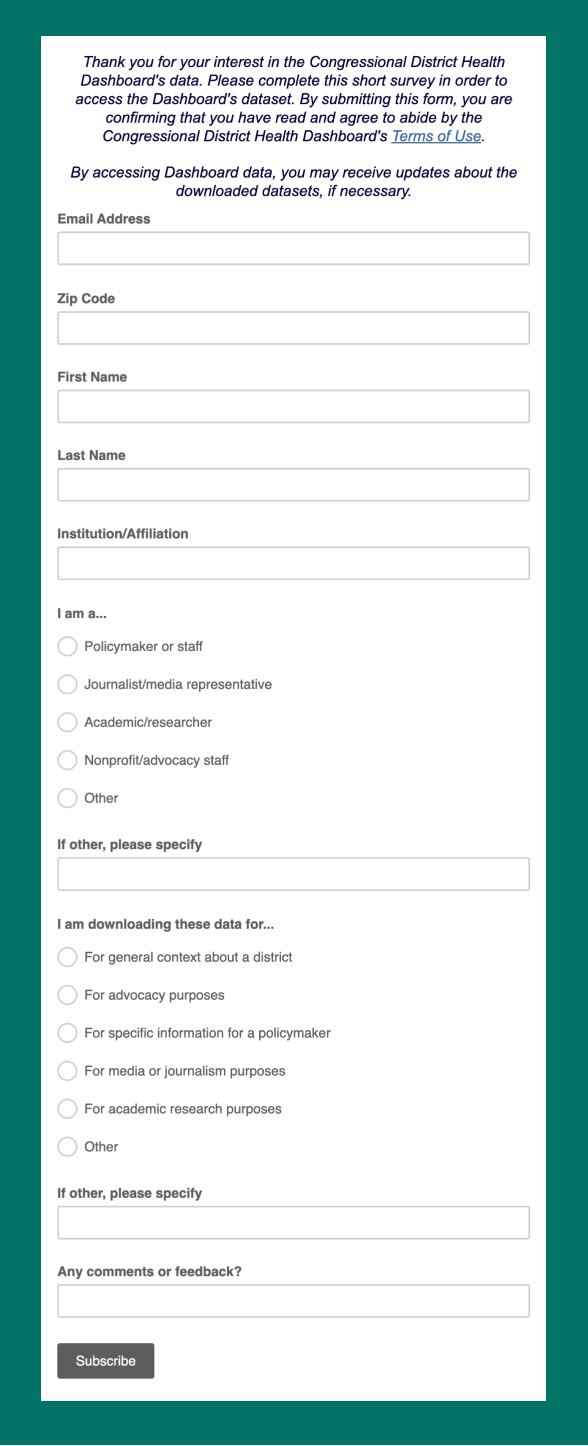
The Dashboard provides policymakers, advocates, and community members with an array of actionable and nonpartisan data at the congressional district level—such as life expectancy, diabetes rates, uninsurance, and children in poverty—to demonstrate strengths and challenges in their regions and drive positive change at the district, state and national level.
Behind the scenes, as part of project completion, Forum One delivered a detailed measurement plan to evaluate the success of the new dashboard in reaching three key goals for their primary target audiences: visiting the dashboard, successfully finding data that is relevant to their work, and applying the data to their work to influence policy.
Each of these primary goals was tied to defined outcomes, KPIs that are collectible and trackable with NYU’s available resources, and relevant data sources for supporting metrics, including Google Analytics, Sprout Social, and Mailchimp. Forum One also provided recommendations for next steps, identifying top growth opportunities and future additional data sources.

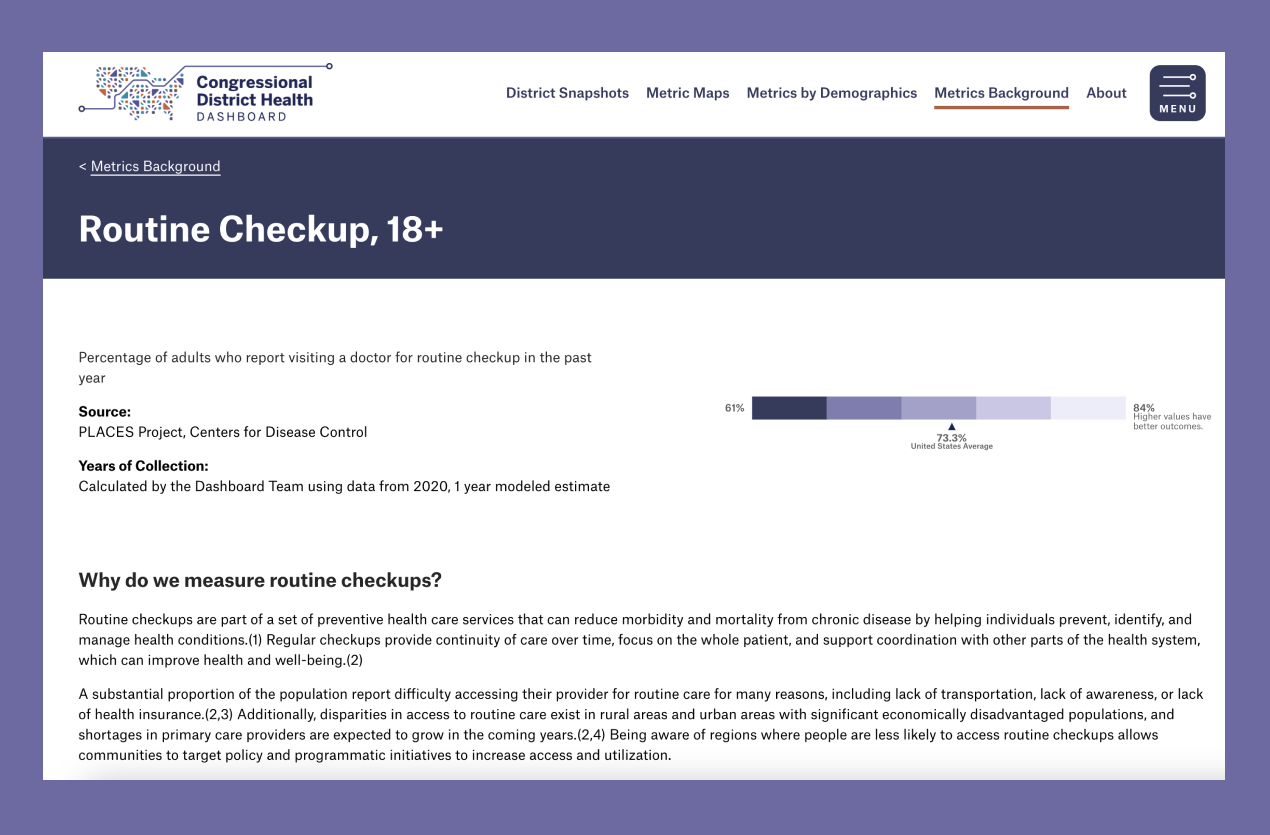
ForbesWhile national challenges might feel overwhelming and distant to lawmakers, local data hold the promise of being more actionable and impactful. To that end, today’s unveiling of the Congressional District Health Dashboard offers policymakers a new and important resource.
